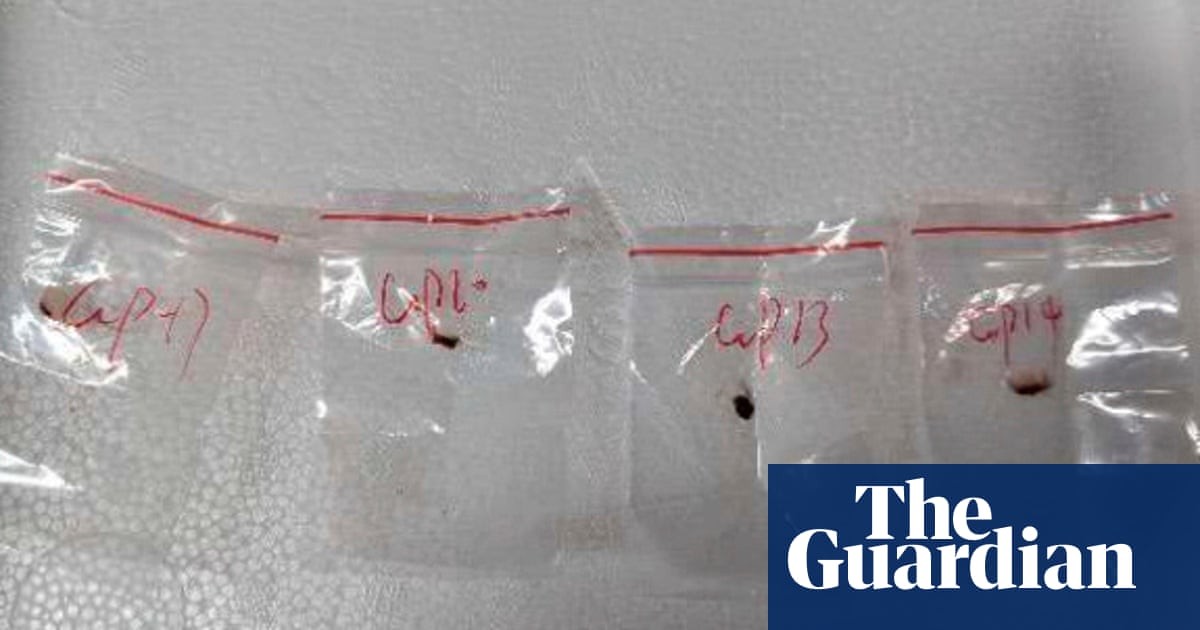Two Chinese Scientists Charged with Smuggling Toxic Fungus into the U.S.

In a troubling development concerning national security, two Chinese scientists, Yunqing Jian, 33, and Zunyong Liu, 34, have been charged with various offenses related to the illicit smuggling of a dangerous fungus into the United States. According to the U.S. Department of Justice, the pair allegedly conspired to bring in Fusarium graminearum, a toxic fungus known to cause severe agricultural damage, particularly affecting crops such as wheat, barley, maize, and rice.
The charges against Jian and Liu include conspiracy, smuggling, making false statements, and visa fraud. These allegations were announced by the U.S. Attorney’s Office for the Eastern District of Michigan in a statement released on Tuesday. The fungus, which is recognized in scientific circles as a potential agroterrorism weapon, has been responsible for billions of dollars in losses annually due to its devastating effects on crops.
Fusarium graminearum is not only harmful to plants; it also poses significant health risks to humans and livestock. The FBI has reported that exposure to the fungus can lead to serious health consequences such as vomiting, liver damage, and reproductive defects.
Jian made her initial court appearance but was remanded back to custody, awaiting a bond hearing scheduled for Thursday. An attorney who was appointed for her initial appearance refrained from making any comments regarding the case.
In July 2024, Liu was intercepted at the Detroit airport when authorities discovered red plant material in his backpack. The FBI stated that during questioning, Liu initially claimed he was unaware of the samples. However, he later altered his story, stating that he intended to utilize the material for research at a University of Michigan laboratory where Jian was employed and where he had also worked in the past.
Prior to this incident, both scientists had been engaged in research on Fusarium graminearum in China. The investigation revealed that Liu possessed a scientific article titled, “Plant-Pathogen Warfare under Changing Climate Conditions,” on his phone, which raised further suspicions. Additionally, communications between Jian and Liu indicated that Jian was already working with the fungus at the campus lab before Liu’s apprehension at the airport. It is important to note that the University of Michigan does not hold federal permits to handle this particular fungus.
Adding to the complexity of the situation, the United States does not have an extradition treaty with China, making Liu’s arrest and any potential prosecution highly unlikely unless he returns to the U.S.
U.S. Attorney Jerome Gorgon Jr. characterized the smuggling of this toxic fungus as a significant national security threat. He emphasized the implications of Jian’s affiliation with the Chinese Communist Party, stating, “These two aliens have been charged with smuggling a fungus that has been described as a ‘potential agroterrorism weapon’ into the heartland of America, where they apparently intended to use a University of Michigan laboratory to further their scheme.”
In response to this incident, U.S. Secretary of State Marco Rubio announced a commitment last week to “aggressively revoke visas” for Chinese students, a strategy that has been criticized by officials in Beijing as both “unreasonable” and “discriminatory.” This move is part of a broader initiative by the Trump administration aimed at tightening immigration policies.
Alongside this case, another situation has arisen involving Kseniia Petrova, a Russian scientist at Harvard, who faces potential deportation after failing to declare biological samples in her luggage when returning from Paris.
This entire episode highlights escalating tensions between the United States and China, particularly regarding matters of national security and immigration.




























